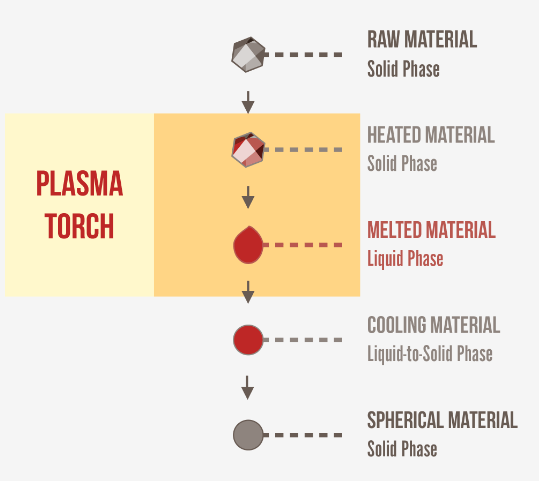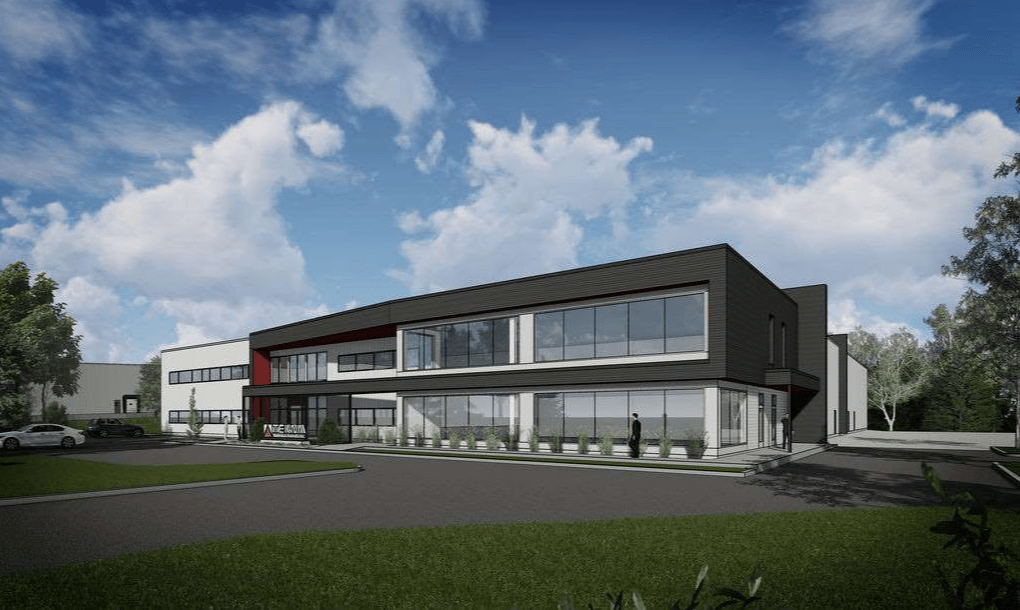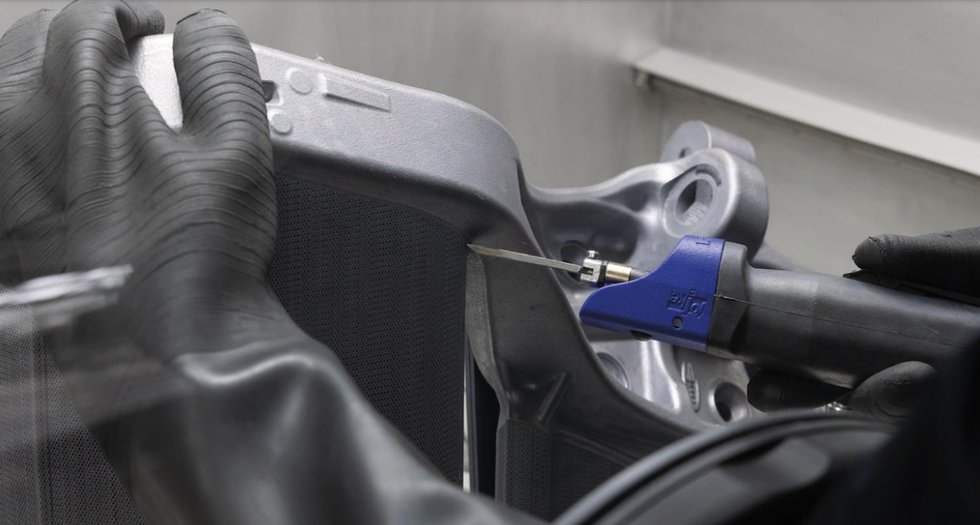ELEGOO Saturn 4 Ultra 10"16K Resin 3D Printer, High Resolution and Smart Resin Printer with Heated Resin Tank, 150mm/h Fast Printing, Auto-Leveling, Wi-Fi Transfer, 8.33 x 4.66 x 8.66 Inch Print Size
$519.99 (as of June 21, 2025 23:57 GMT +00:00 - More infoProduct prices and availability are accurate as of the date/time indicated and are subject to change. Any price and availability information displayed on [relevant Amazon Site(s), as applicable] at the time of purchase will apply to the purchase of this product.)In an exciting win for innovation, Tekna Holding AS has triumphed over Colibrium Additive’s subsidiary, Advanced Powders & Coatings Inc. (AP&C), in a significant patent dispute surrounding titanium powder production methods in Canada. The Federal Court of Canada ruled decisively in Tekna’s favor, invalidating AP&C’s ‘502 Patent entirely and deeming most claims in the ‘236 Patent invalid. This pivotal decision allows Tekna to continue their pioneering work in metal powder manufacturing unimpeded. Celebrating the ruling, Tekna’s leadership emphasized the validation of their market position and unwavering commitment to innovation, reinforcing their standing amidst a competitive landscape of 3D printing and metal powder technology. Have you ever wondered how companies battle it out in the courtrooms over cutting-edge technology, particularly in the rapidly advancing world of 3D printing and metal powders? Let’s dive into the story of Tekna’s triumph over Colibrium Additive’s (AP&C) in a vital patent dispute, shedding light on how such legal battles shape the future of innovation.

$30 off $400+ Anycubic Products with code AC30OFF
Tekna Triumphs in Patent Dispute Over Titanium Powder Production Methods
Summary of the Article
In a high-stakes legal confrontation, Tekna Holding AS, has emerged victorious over Advanced Powders & Coatings Inc. (AP&C), a subsidiary of Colibrium Additive. This section will outline the key points of the case, which revolved around patent rights concerning titanium powder production methods in Canada.
Parties Involved
The two primary players in this legal saga are:
- Tekna Holding AS: A leader in advanced materials and plasma systems, known for its innovative approach to metal powder production.
- Advanced Powders & Coatings Inc. (AP&C): An entity under Colibrium Additive, specializing in high-quality metal powders used in additive manufacturing or 3D printing.
The Contention
At the heart of the dispute were the patent rights for the methods used in producing titanium powder. AP&C alleged that Tekna infringed on its Canadian patents, specifically the ’502 Patent and the ’236 Patent. These patents relate to specific processes of metal powder atomization, a critical aspect in producing uniform and high-quality powders for 3D printing.
The Accusations: A Closer Look
To make it clearer, here’s a breakdown of the patents mentioned:
’502 Patent
- Subject: Processes related to the atomization of metal powders.
- Accusation: AP&C claimed Tekna’s methods directly infringed upon their patent.
’236 Patent
- Subject: Similar to the ’502 Patent, focusing on nuanced processes in the atomization technique.
- Accusation: Included in the case post its issuance in 2020, with AP&C alleging Tekna’s methods were in violation.
The Ruling of the Federal Court of Canada
In a significant ruling, the Federal Court of Canada sided with Tekna. Here’s what the court decided:
- ’502 Patent: Declared invalid and hence, void.
- ’236 Patent: Mostly invalid, with some select claims non-infringed but insufficient to affect Tekna’s operations.
Result: A Big Win for Tekna
The court’s ruling allowed Tekna to continue its momentum in manufacturing titanium powder in Canada without any legal constraints from AP&C’s patents. This outcome not only safeguards Tekna’s current operations but also solidifies its position as an innovative leader.
Statements from Tekna’s Leadership
The victory was warmly received by Tekna’s leadership, reflecting their confidence and long-term vision.
- Dag Teigland (Chair of Tekna Holding): Praised the court’s decision, emphasizing the positive impact on Tekna’s market position and continued innovation.
- Luc Dionne (CEO of Tekna): Lauded the ruling as a validation of Tekna’s pioneering market position and affirmed their commercial freedom moving forward.
Background of the Case
Let’s take a step back and understand how this all started.
- 2019: Tekna initiated litigation seeking a declaration that the ’502 Patent was invalid.
- AP&C’s Response: Filed counterclaims of infringement, introducing the ’236 Patent into the fray following its issuance in 2020.
Industry Context
To put things in perspective, it’s essential to recognize that patent disputes in the 3D printing world are nothing new. Recent significant cases include:
- Markforged and Continuous Composites: Involved in patent disagreements over various 3D printing technologies.
- Torbjørn Ludvigsen vs. US Department of Energy’s Oak Ridge National Laboratory: Another notable case that emphasized the importance of intellectual property in this innovative field.
These instances emphasize the competitive nature of the 3D printing industry, where safeguarding and challenging intellectual property rights are crucial for technological advancement.
Buy Photon Mono M5 Get Free 1KG Resin
The Broader Implications of the Ruling
Innovation and Market Dynamics
This ruling sets a precedent that could influence how future patent disputes in the additive manufacturing sector are approached. It underscores the importance of rigorous, innovative methods unencumbered by potentially overreaching patent claims.
Commercial Freedom and Growth
For Tekna, the verdict not only ensures continuity in their production processes but also empowers them to pursue further advancements and market expansion without the looming threat of patent litigation.
Competitive Landscape
As companies push boundaries in 3D printing and metal powder technologies, legal clarity becomes vital. This ruling provides a framework for other firms to navigate the patent landscape, balancing protection and innovation.

Tekna: A Closer Look
Company Overview
Tekna boasts a portfolio rich in advanced materials and plasma systems, serving diverse sectors, including aerospace, electronics, and healthcare. Their commitment to innovation and quality positions them as a key player in the industry.
Noteworthy Innovations
- Plasma Systems: Tekna’s plasma systems are renowned for their precision and efficiency in producing high-quality metal powders.
- Material Science: Their continuous research propels advancements in material properties, enhancing performance and reliability.
Industry Impact
Tekna’s victory not only cements their status but also drives forward the industry’s competitive spirit. It exemplifies how robust legal strategies and cutting-edge innovation can secure a company’s future in the fast-evolving tech landscape.

The Patent Dispute Process Explained
Patent Rights and Infringement
Patents are critical for protecting intellectual property. They grant the holder exclusive rights to an invention, preventing others from making, using, or selling it without permission. When a company feels their patents are infringed, they may pursue legal action to safeguard their innovations.
Legal Proceedings
In this case, the legal process began with Tekna challenging the ’502 Patent’s validity. Following AP&C’s counterclaims, the court meticulously examined the patents’ specifics, technicalities, and alleged infringements before arriving at its ruling.
Implications of the Ruling
- Invalid Patents: Once declared invalid, these patents cannot hinder Tekna or potentially other entities in their innovative pursuits.
- Legal Precedent: This case adds to the body of legal precedents guiding future patent disputes, emphasizing thorough examination and the need for truly novel innovations to warrant patent protection.

Key Takeaways and Future Outlook
Emphasis on Innovation
The outcome of this case underscores the significance of genuine innovation. Companies are encouraged to invest in research and development, ensuring their methods and technologies stand up to rigorous scrutiny.
Legal Strategies in Tech Industries
For tech firms, especially in fields like 3D printing and material science, robust legal strategies are essential. This includes proactive measures like challenging potentially invalid patents and defending against infringement claims comprehensively.
Industry Evolution
As the 3D printing and additive manufacturing sectors continue to evolve, such legal battles will likely become more common. They serve as both challenges and catalysts, pushing companies to refine their technologies and fortify their intellectual property frameworks.

Conclusion
Tekna’s triumph in this patent dispute marks a significant moment not just for the company but for the broader tech and 3D printing industries. It highlights the dynamic interplay between innovation and legal protections, guiding how enterprises navigate the future of technological advancement. Whether you’re an industry insider or simply curious about the behind-the-scenes of cutting-edge tech, the story of Tekna’s success offers valuable insights into the ever-evolving landscape of innovation and intellectual property.
$30 off $400+ Anycubic Products with code AC30OFF








